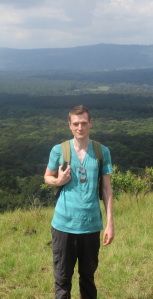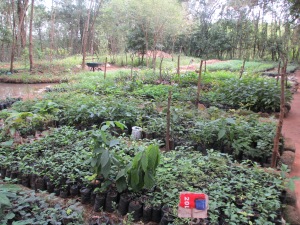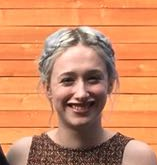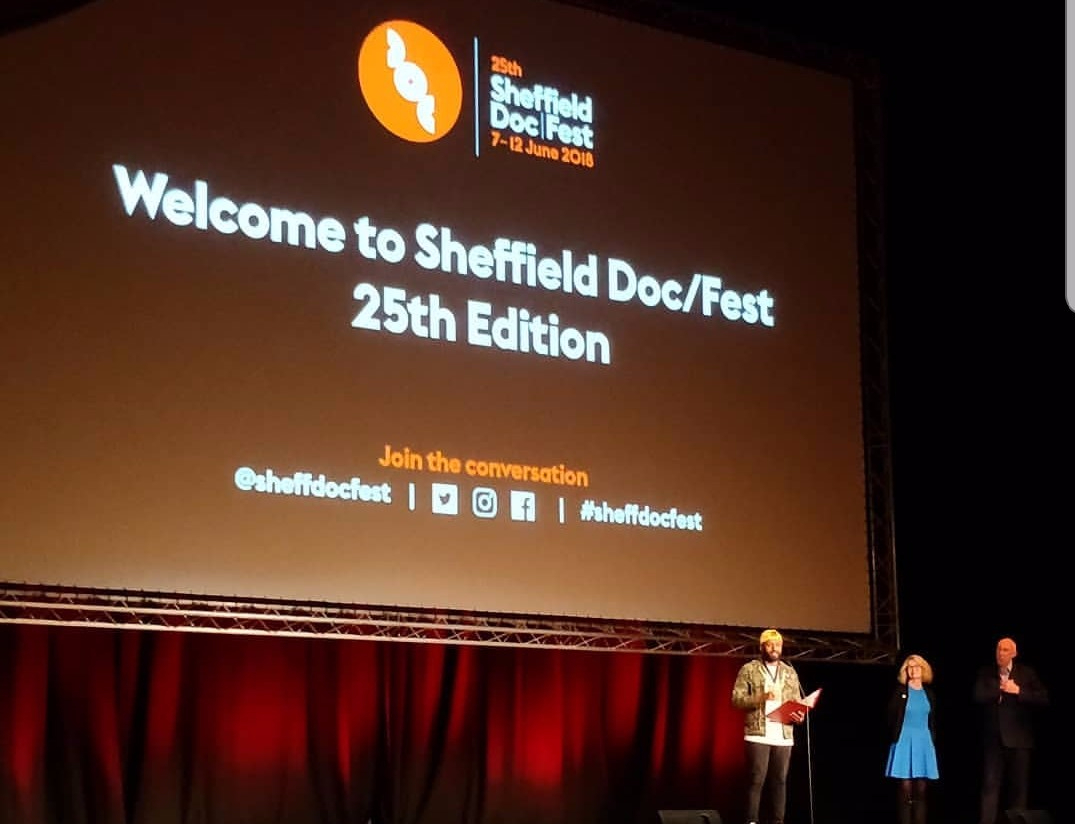Before completing his MA last September, Sam Robbins spent several weeks in Kenya producing a documentary film with Actuality Media. From the email that began his journey, to an award nomination for the finished project, here’s his account of the outreach programme.
In August 2014, I travelled to Kenya as part of the Actuality Media team. I’d been forwarded a link to their website by the MA staff, took a quick look at their page and pretty much decided right away that I wanted to do it. I’d been stuck at home for a while; before enrolling on FTV the bulk of my time was spent earning money for its tuition, then once I was there staying at home saved me that bit more from accommodation fees. I’d already lived it up in my undergraduate days, so it seemed the sensible option with no student loan available.
No surprise, living at home made me pretty restless though. I was more and more determined to get out and do something new and exciting, something ambitious and out of my comfort zone. I’d never even heard of The Study Abroad Programme that Actuality Media were offering, it came from nowhere, just some random email that I happened to pursue. I saw the words, ‘outreaches in Kenya, Ecuador and Cambodia’ and I was sold. The worst thing I could be was all talk about wanting to do this and that, it just took a little spontaneity and I was committed.
So roll-on August! That was my mentality for the next few months. I was accepted onto the Kenya outreach to be Producer for a short documentary on Palos Farm, a permaculture farm based in the sugarcane region of Kisumu. My team consisted of myself – the Producer – and three others: a Director, Cinematographer and Editor. So with twelve of us on the programme, that made three groups each working on separate documentaries within Kisumu, all of us relatively new to the work. To overlook and guide us on these projects, as it was so new to us, there were also two Production Supervisors offering their expertise in helping us create a polished piece.
Pre-Production
Things kicked off with research. The first two weeks were dedicated to making a plan of attack. Whilst the leg work had already been done, liaising with the organisations we were going to document, we still had to discover a unique story to chronicle. Part of the outreach scheme was that each organisation we worked alongside was promoting social change in the community. Palos Farm was introducing a new, sustainable means of farming that could improve the livelihood of workers in the region. Meanwhile, the other two groups were working with the local charities SWAP (Safe Water and Aids Project) and the YCCM (Young County Change Makers). As Actuality Media were keen to find a strong protagonist to tell each organisation’s story, this meant uncovering an individual that had been positively affected by their NGO’s work. These protagonists were to take centre stage, a character with a compelling life that could promote all the work that each program had done for them.
 For my group, a large amount of research was spent immersing ourselves in Palos Farm. We learnt the structure and goals of the farm, what they were growing and why, and we also met and talked to a lot of the farmhands. It took some delving and at times work with a translator, but we soon met our protagonist in one of these farmhands, a supervisor named Joseph.
For my group, a large amount of research was spent immersing ourselves in Palos Farm. We learnt the structure and goals of the farm, what they were growing and why, and we also met and talked to a lot of the farmhands. It took some delving and at times work with a translator, but we soon met our protagonist in one of these farmhands, a supervisor named Joseph.
Once this was decided we had to structure our documentary. This meant creating an arc for Joseph’s story, specifically pointing to how Palos Farm had helped him and his family. We had to know beforehand how we were going to edit the film together and visually capture moments that backed-up what was being said. We needed to create a shot list, determine interviewees and decide on locations and the necessary questions to ask. In all, it meant putting together a production schedule that would take us neatly into week three; shooting week. Continue reading →



 Over the course of the week in Birmingham, we were equipped with everything we could possibly need to know about factual filmmaking. Thanks to the MA, a lot of what we covered was already familiar to me, but the training also covered some new ground which was incredibly interesting. The purpose of the week’s training was to help each of us hone one of our own ideas for a factual programme, or film, and prepare a pitch which we would eventually present to real commissioners at Sheffield Documentary Film Festival.
Over the course of the week in Birmingham, we were equipped with everything we could possibly need to know about factual filmmaking. Thanks to the MA, a lot of what we covered was already familiar to me, but the training also covered some new ground which was incredibly interesting. The purpose of the week’s training was to help each of us hone one of our own ideas for a factual programme, or film, and prepare a pitch which we would eventually present to real commissioners at Sheffield Documentary Film Festival.
 I applied to the MA Film and Television: Research and Production for a couple of reasons. The first one was I needed the knowledge about how to make a sustainable visual product. Even though I had a background in Film Directing, at the time of my BA I was very concentrated in shooting dramas and I missed out on some valuable lessons. Even though shooting drama is exciting, it is also very expensive. It involves a lot of people, a lot of time and a lot of effort. Plus financing, that is more often than not difficult to obtain. I had invested some years in film making and already had my mind set on what I wanted to do, however it turned out that I didn’t realize I had to do more of it. Feature film-making is great but if you want to sustain a business and remain a valuable asset in the industry you need to have a broader set of skills that involve factual TV, documentaries and similar genres. Making movies is fun, paying the bills is mandatory, so in this line of thought I believe that the opportunities and experience that the MA FTV provides are essential to anyone who chooses the path of filmmaking as a career.
I applied to the MA Film and Television: Research and Production for a couple of reasons. The first one was I needed the knowledge about how to make a sustainable visual product. Even though I had a background in Film Directing, at the time of my BA I was very concentrated in shooting dramas and I missed out on some valuable lessons. Even though shooting drama is exciting, it is also very expensive. It involves a lot of people, a lot of time and a lot of effort. Plus financing, that is more often than not difficult to obtain. I had invested some years in film making and already had my mind set on what I wanted to do, however it turned out that I didn’t realize I had to do more of it. Feature film-making is great but if you want to sustain a business and remain a valuable asset in the industry you need to have a broader set of skills that involve factual TV, documentaries and similar genres. Making movies is fun, paying the bills is mandatory, so in this line of thought I believe that the opportunities and experience that the MA FTV provides are essential to anyone who chooses the path of filmmaking as a career. In the second half of the event we showed all 14 One Minute Movie entries, which responded to the festival theme of Memory and Forgetting. The range and quality of submissions to the competition this year was fantastic, necessitating an expansion in the judging panel! The overall winner was MA Film & Television student Bhulla Beghal, with his animation One Day. Asked where he drew his inspiration from, Bhulla mentioned Ari Folman’s documentary Waltz With Bashir, which features on the MA’s Documentary Filmmaking module syllabus.
In the second half of the event we showed all 14 One Minute Movie entries, which responded to the festival theme of Memory and Forgetting. The range and quality of submissions to the competition this year was fantastic, necessitating an expansion in the judging panel! The overall winner was MA Film & Television student Bhulla Beghal, with his animation One Day. Asked where he drew his inspiration from, Bhulla mentioned Ari Folman’s documentary Waltz With Bashir, which features on the MA’s Documentary Filmmaking module syllabus.


